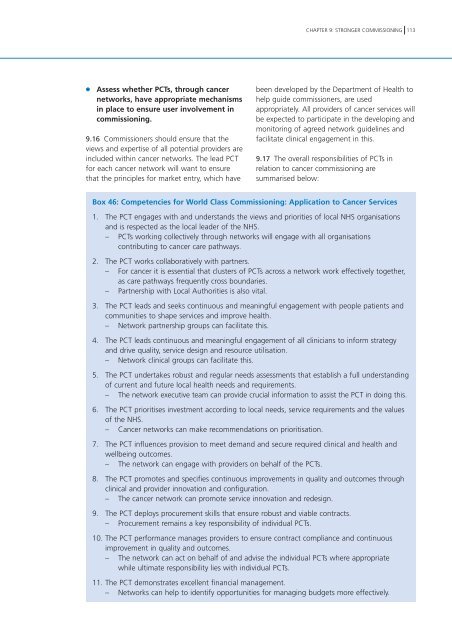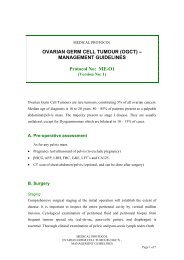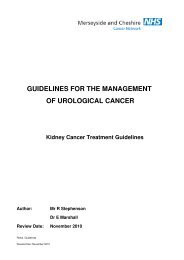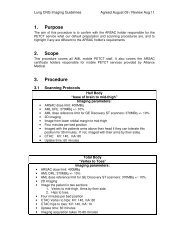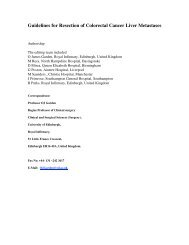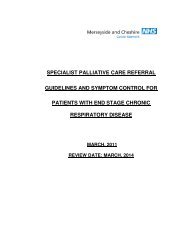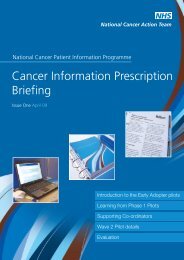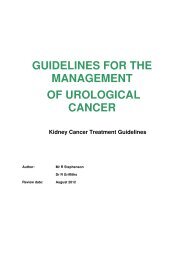Cancer Reform Strategy - NHS Cancer Screening Programmes
Cancer Reform Strategy - NHS Cancer Screening Programmes
Cancer Reform Strategy - NHS Cancer Screening Programmes
- No tags were found...
Create successful ePaper yourself
Turn your PDF publications into a flip-book with our unique Google optimized e-Paper software.
CHAPTER 9: STRONGER COMMISSIONING 113●Assess whether PCTs, through cancernetworks, have appropriate mechanismsin place to ensure user involvement incommissioning.9.16 Commissioners should ensure that theviews and expertise of all potential providers areincluded within cancer networks. The lead PCTfor each cancer network will want to ensurethat the principles for market entry, which havebeen developed by the Department of Health tohelp guide commissioners, are usedappropriately. All providers of cancer services willbe expected to participate in the developing andmonitoring of agreed network guidelines andfacilitate clinical engagement in this.9.17 The overall responsibilities of PCTs inrelation to cancer commissioning aresummarised below:Box 46: Competencies for World Class Commissioning: Application to <strong>Cancer</strong> Services1. The PCT engages with and understands the views and priorities of local <strong>NHS</strong> organisationsand is respected as the local leader of the <strong>NHS</strong>.– PCTs working collectively through networks will engage with all organisationscontributing to cancer care pathways.2. The PCT works collaboratively with partners.– For cancer it is essential that clusters of PCTs across a network work effectively together,as care pathways frequently cross boundaries.– Partnership with Local Authorities is also vital.3. The PCT leads and seeks continuous and meaningful engagement with people patients andcommunities to shape services and improve health.– Network partnership groups can facilitate this.4. The PCT leads continuous and meaningful engagement of all clinicians to inform strategyand drive quality, service design and resource utilisation.– Network clinical groups can facilitate this.5. The PCT undertakes robust and regular needs assessments that establish a full understandingof current and future local health needs and requirements.– The network executive team can provide crucial information to assist the PCT in doing this.6. The PCT prioritises investment according to local needs, service requirements and the valuesof the <strong>NHS</strong>.– <strong>Cancer</strong> networks can make recommendations on prioritisation.7. The PCT influences provision to meet demand and secure required clinical and health andwellbeing outcomes.– The network can engage with providers on behalf of the PCTs.8. The PCT promotes and specifies continuous improvements in quality and outcomes throughclinical and provider innovation and configuration.– The cancer network can promote service innovation and redesign.9. The PCT deploys procurement skills that ensure robust and viable contracts.– Procurement remains a key responsibility of individual PCTs.10. The PCT performance manages providers to ensure contract compliance and continuousimprovement in quality and outcomes.– The network can act on behalf of and advise the individual PCTs where appropriatewhile ultimate responsibility lies with individual PCTs.11. The PCT demonstrates excellent financial management.– Networks can help to identify opportunities for managing budgets more effectively.


